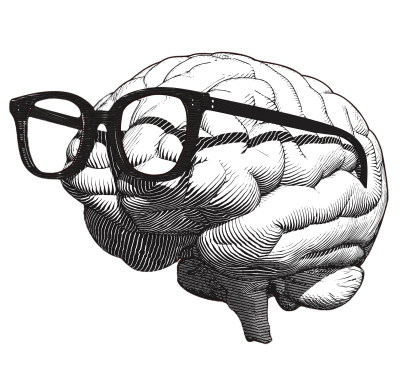Is Baby Brain Real? The Truth About Pregnancy Changes
Pregnancy is a time of remarkable change, not only for the body but also for the brain. Most people know about physical signs, like an expanding bump, but deep inside the skull, the mother’s brain is also adapting. These neural changes help prepare her for the challenges of parenthood. As research advances, scientists continue to uncover more fascinating insights into how pregnancy literally reshapes the mother’s mind.
How Pregnancy Changes the Brain
Reshaping the Brain’s Architecture
During pregnancy, a woman’s brain does not simply remain the same. Several studies using MRI scans have shown that certain regions of the brain can become altered in size and volume. The brain’s overall structure may shift to enhance areas linked to bonding and empathy. Some areas related to social understanding and emotional regulation tend to show noticeable changes.
Grey Matter Reductions and Refinements
One key finding is the reduction of grey matter in specific parts of the brain. While it might sound worrying, scientists believe these reductions are actually beneficial. A leaner, more efficient network can improve a mother’s ability to understand her baby’s signals and respond appropriately. It is similar to pruning a tree: cutting back unnecessary branches makes the whole system healthier.
Connectivity Changes in Key Networks
Brain connectivity also adapts during pregnancy. The mother’s brain networks reorganise to become more tuned to her infant’s needs. Pathways that process the baby’s cues and the mother’s emotional responses become more efficient. These changes help ensure that after birth, a mother can detect the slightest cry or subtle facial expression. This heightened sensitivity fosters a stronger, more responsive parent-child relationship.
Neurochemical Changes During Pregnancy
Oxytocin: The Bonding Hormone
Oxytocin is often called the “love hormone.” During pregnancy, levels of oxytocin climb steadily, especially as the due date approaches. It prepares the mother for labour and delivery, but it also encourages intense feelings of affection. After birth, this hormone helps the mother form a profound bond with her newborn. Oxytocin primes her to feel closer, more protective, and more sensitive to her baby’s emotions.
Allopregnanolone: The Calming Influence
Allopregnanolone is another hormone that surges during pregnancy. It is linked with soothing effects on mood and stress responses. By boosting this chemical, the mother’s body aims to keep her calm and balanced during a challenging time. Rising levels may help buffer stress, ensuring that the mother feels better equipped to handle the ups and downs of early motherhood.
Relaxin: Preparing the Body and Mind
Relaxin is best known for loosening ligaments and joints to aid childbirth. Yet, it also plays a subtle role in the brain. As it prepares the pelvis for delivery, it may also support overall emotional readiness. In other words, relaxin helps set the stage for the mother’s body and mind to work together as she moves towards caring for her newborn.
Understanding 'Baby Brain'?
What is ‘Baby Brain’?
Many mothers-to-be report moments of forgetfulness or difficulty concentrating. This so-called “baby brain” might sound like a myth, but there is some truth behind the term. The changes in the mother’s brain, combined with hormonal shifts and increased emotional demands, can impact memory and focus. She might forget where she left her keys or struggle to remember an appointment. Yet, these lapses are usually temporary and normal.
Rewiring the Mind for Motherhood
‘Baby brain’ is not a decline in intelligence. Instead, it is the brain’s way of redirecting mental resources. The mother is adapting, focusing more energy on understanding her baby’s needs and emotions. This mental rewiring supports caregiving and bonding. In other words, some cognitive skills may dip slightly, but social and emotional skills soar. The mother’s mind becomes more sensitive to subtle cues, ensuring better infant care.
Emotional Awareness Over Logic
Pregnancy nudges the brain towards heightened emotional awareness. While this may come at the expense of some memory tasks, it offers other benefits. The mother’s brain is prioritising tasks that matter most for her baby’s survival. She becomes more attuned to emotional signals and better able to soothe her little one. This trade-off can prove vital in helping her baby feel secure, understood, and loved.
Conclusion
The brain changes during pregnancy are incredible. Structural adjustments, like grey matter refinements and altered connectivity, prepare the mother to respond effectively to her infant. Hormones like oxytocin, allopregnanolone, and relaxin work behind the scenes, shaping mood, bonding, and readiness for motherhood. Although the idea of “baby brain” can be frustrating, it often reflects a strategic reshuffling of mental resources. By making a mother more sensitive to her baby’s emotions, these changes help build a powerful parent-child connection.
These adaptations are proof that the brain is not fixed. Instead, it is flexible and responsive to the demands of life. Pregnancy pushes the mother’s brain to become the best version of itself for caring and nurturing. For more insights and an engaging visual explanation, I invite you to check out my video on this topic.
Thanks for reading and please comment on YouTube with any questions! Click here to see the other blogs and associated videos I have about neuroscience! 🙂
If you want to support this evidence based neuro-explainer content then feel free to buy me a coffee or become a patreon! 😊
References
GM Reduction – https://www.nature.com/articles/nn.4458
Oxytocin changes – https://pmc.ncbi.nlm.nih.gov/articles/PMC3902863/e
Mental Health – https://pubmed.ncbi.nlm.nih.gov/36631239/






